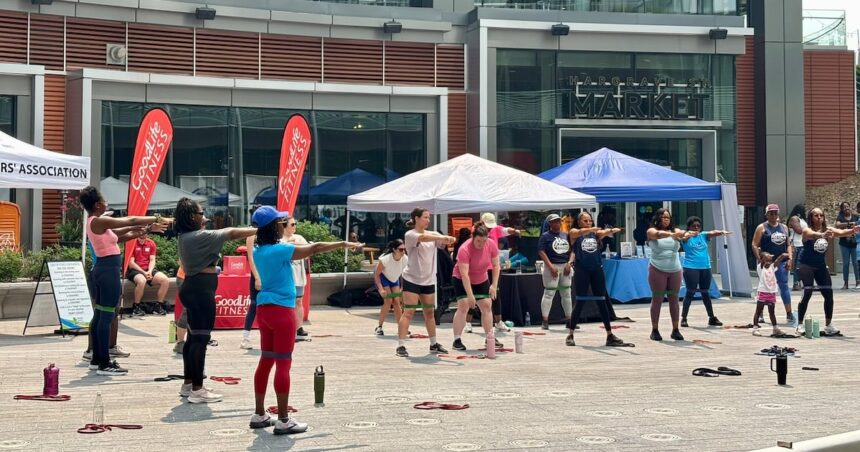In downtown Winnipeg this weekend, an energetic gathering transformed the urban core into a vibrant hub of health advocacy as the Pegcity Steppers hosted their annual health and wellness event. The sound of rhythmic stepping and enthusiastic cheers echoed through the streets, drawing attention to critical health issues affecting the community while offering practical solutions through movement and education.
“This isn’t just about exercise—it’s about creating a movement that addresses health disparities in our communities,” explained Darren Johnson, founder of Pegcity Steppers, as participants of all ages engaged in synchronized stepping routines. “Physical activity is medicine, and we’re bringing that medicine directly to people who might otherwise not have access to it.”
The event, now in its fifth year, has evolved from a small neighborhood gathering to a significant civic health initiative. According to Manitoba Health statistics, communities represented at the event face disproportionately higher rates of diabetes, hypertension, and heart disease—conditions that can be mitigated through consistent physical activity and proper nutrition.
Local health officials praised the grassroots approach. Dr. Maya Sandhu, Director of Community Health Initiatives at Winnipeg Regional Health Authority, observed the proceedings with approval. “What makes this program effective is that it meets people where they are,” she noted. “The Pegcity Steppers have found a culturally resonant way to promote health that doesn’t feel clinical or intimidating.”
Beyond the stepping performances, the event featured blood pressure screenings, nutritional counseling, and diabetes risk assessments. Local vendors offered healthy food options while community organizations distributed educational materials about accessible health services.
The initiative appears to be yielding measurable results. A community health survey conducted by the University of Manitoba last year found that regular participants in Pegcity Steppers programs showed improved cardiovascular metrics and reported higher levels of physical activity compared to non-participants from similar demographics.
City Councillor Maria Lopez, who attended the event, announced that the municipal government would be increasing funding for community-based health initiatives in next year’s budget. “What we’re seeing here today is precisely the kind of community-led health advocacy that deserves our support,” she stated while addressing attendees.
The event culminated in a mass participation stepping routine that included both trained performers and community members who had learned the basic steps throughout the day. The inclusive atmosphere reflected the organization’s philosophy that health belongs to everyone, regardless of age, background, or fitness level.
As Canada continues to navigate challenges in healthcare accessibility and preventative medicine, grassroots initiatives like the Pegcity Steppers event demonstrate how community-based approaches can complement traditional medical systems. The organizers have announced plans to expand their programming to additional neighborhoods in the coming year.
With health systems increasingly strained across the country, could community-led initiatives like this represent a critical component of our national strategy for addressing preventable diseases and promoting wellness in urban centers?

























